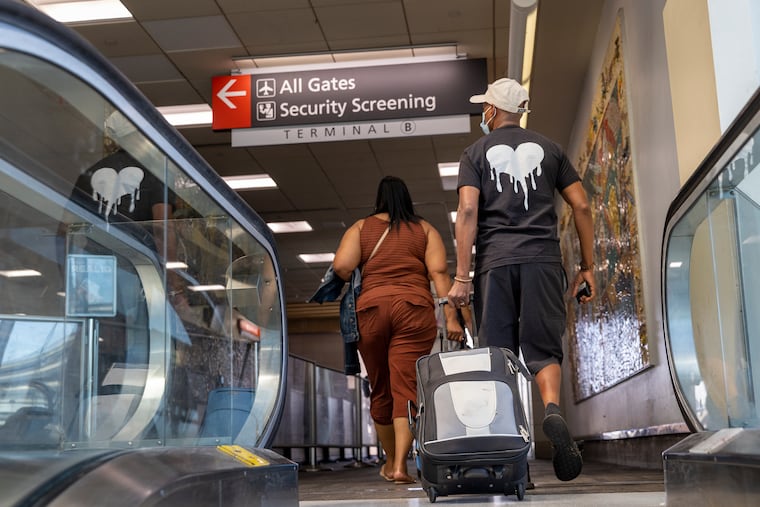Philly voters approve ballot measures to create aviation department, expand city workforce pipeline
Philly will create a permanent aviation department and change civil service regulations to expand employment opportunities.

Philadelphia voters on Tuesday passed two ballot measures that will create a permanent aviation department within city government and tweak the city’s civil service regulations to expand employment opportunities.
Voters historically almost always approve ballot questions, and this Election Day was no different.
Philadelphia’s $400-million-a-year aviation department has long been nested within the Department of Commerce — an unusual arrangement for an agency tasked with overseeing two airports and balancing the third-largest departmental budget in City Hall.
Mayor Jim Kenney and former Philadelphia International Airport CEO Rochelle “Chellie” Cameron backed the proposal to designate aviation as its own entity in the city charter, which airport officials said would streamline operations and give the airport more say over staffing and grant funding.
The mayor will appoint a cabinet-level executive for the newly established department.
The second ballot question that voters greenlit Tuesday deals with the city’s civil service regulations.
While the mayor appoints key officials, most government jobs are filled through the Civil Service Commission, a test-based system that is designed to fill jobs based on merit by hiring only top-scoring applicants.
But with the city facing a critical workforce shortage — with about 1 in 7 municipal jobs sitting vacant — lawmakers have sought to broaden hiring practices.
The approved charter change would tweak the city’s regulations to grant hiring preference to graduates from one of the School District of Philadelphia’s career technical education programs.
City Councilmember Katherine Gilmore Richardson, who pushed for the charter change, touted it as a way to strengthen the pipeline from the school district to well-paying, union-represented government jobs.
According to the district, there are such programs in over 40 occupational areas from agriculture to automotive technology to plumbing.
In an op-ed published by the news site Billy Penn, Gilmore Richardson said there are about 60 entry-level positions in the city’s workforce that are aligned with program skills. The average annual salary hovers just below $42,000, and most positions are represented through District Council 33, the city’s largest municipal labor union.
Civil service regulations already allow for preferential scoring for applicants who have completed similar job training programs.